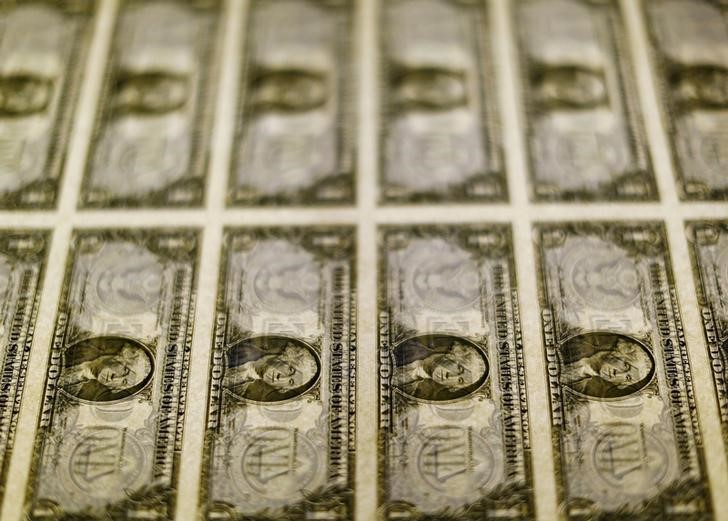By Yuzuha Oka
TOKYO (Reuters) - The dollar held gains near a 3-1/2-week high on Wednesday after Federal Reserve Chair Janet Yellen signaled a faster pace of U.S. interest rate hikes.
Yellen told the U.S. Senate Banking Committee the central bank will likely need to raise interest rates at one of its upcoming meetings, although she expressed caution amid considerable uncertainty over economic policies under President Donald Trump's administration.
The dollar index (DXY), which measures the greenback against its six major peers, was last up 0.1 percent at 101.26. The index rose to 101.38 on Tuesday following Yellen's remarks, the highest since Jan. 20.
"Investors didn't expect Yellen to be that hawkish, so the dollar gained," said Ayako Sera, market strategist at Sumitomo Mitsui Trust Bank.
"There are no big factors preventing the Fed from raising rates in March. Unless the emerging markets become volatile or the U.S. economic data shows weakness, the March rate hike is highly plausible," Sera added.
U.S. interest rates futures
Since the end of the 2007-09 recession, the Fed has raised rates once in December 2015 and again in December of last year.
President Trump has announced a rollback of financial regulation though details remain scarce, and markets are yet to get clarity on the size and scope of the tax cuts he has promised.
"Changes in fiscal policy or other economic policies could potentially affect the economic outlook," said Yellen, underscoring the uncertainty over economic policy.
Yellen is scheduled to appear before the House of Representatives Financial Services Committee later on Wednesday.
"Yellen doesn't seem to have changed her stance on rate hikes. Bids on a March rate hike still remains to be a minority," said Masashi Murata, senior currency strategist at Brown Brothers Harriman.
"The dollar/yen was weak last week, so investors bought back the dollar on Yellen's comments," Murata said.
The dollar was fetching 114.32 yen
The euro was last down 0.1 percent at $1.0572, wallowing near a one-month low of $1.0559 plumbed on Tuesday amid political risk and disappointing regional economic data.
The euro has come under pressure from concerns about France's presidential election and Greek bailout talks. Polls showed National Front leader Marine Le Pen, who has promised to pull France out of the euro zone and hold a referendum on European Union membership, is leading in the first round of the French presidential runoff.
Greece was aiming to conclude the drawn-out review of the country's international bailout on Feb. 20 to coincide with a meeting of euro zone finance ministers.
However, Eurogroup President Jeroen Dijsselbloem said on Tuesday that Greece and its international lenders are not expected to reach agreement by next Monday, noting "the IMF must also be on board".
Talks between Athens, its European Union lenders and the International Monetary Fund over labor and energy reforms, fiscal targets and debt relief have dragged on for months, rekindling fears of a new crisis in the single-currency bloc.
Investors are eyeing a batch of U.S. economic data due out later on Wednesday, including consumer price index (CPI) and retail sales, for any fresh catalysts.

The CPI is expected to have risen 0.3 percent in January after a similar gain in December, while retail sales are likely to have risen 0.1 percent in January after advancing 0.6 percent the previous month.